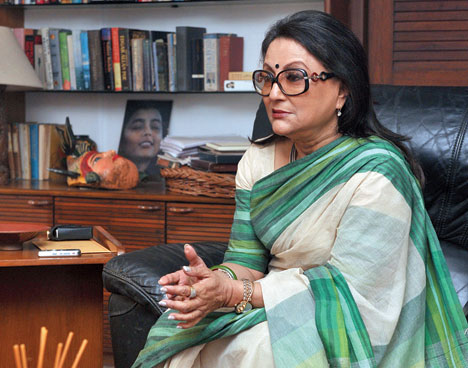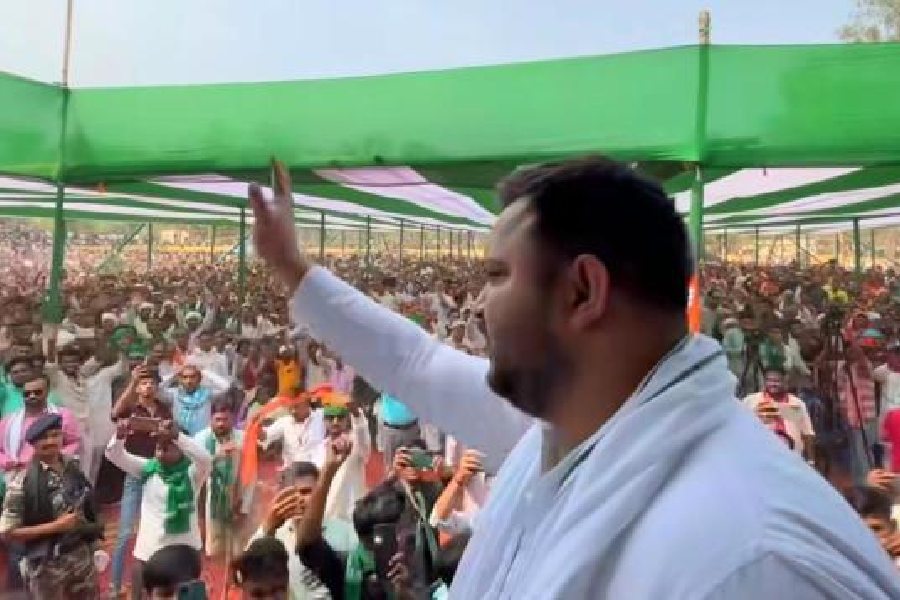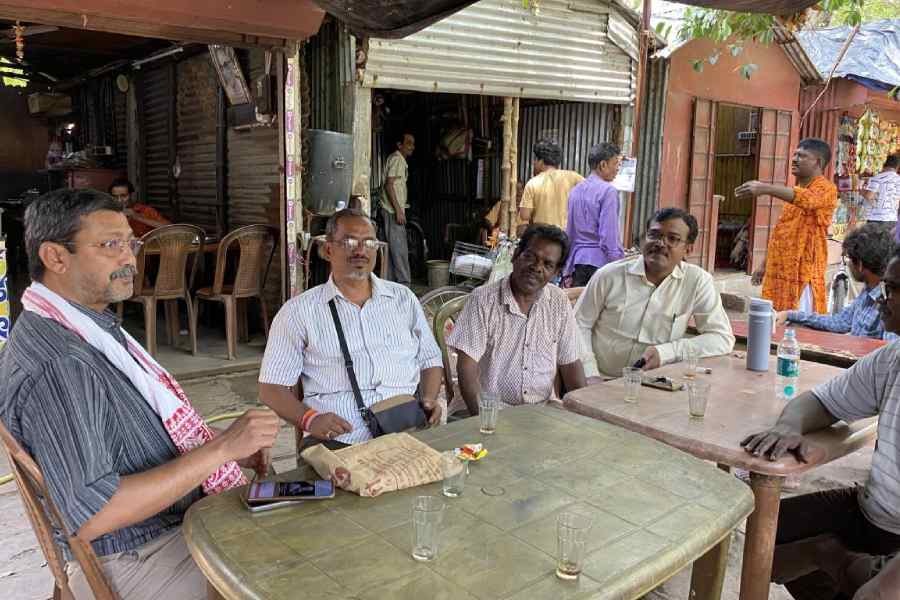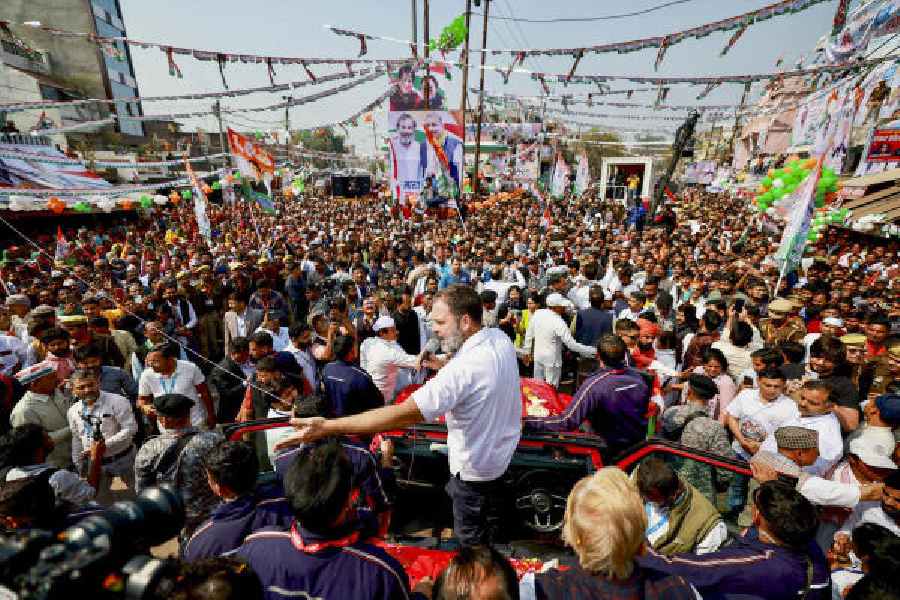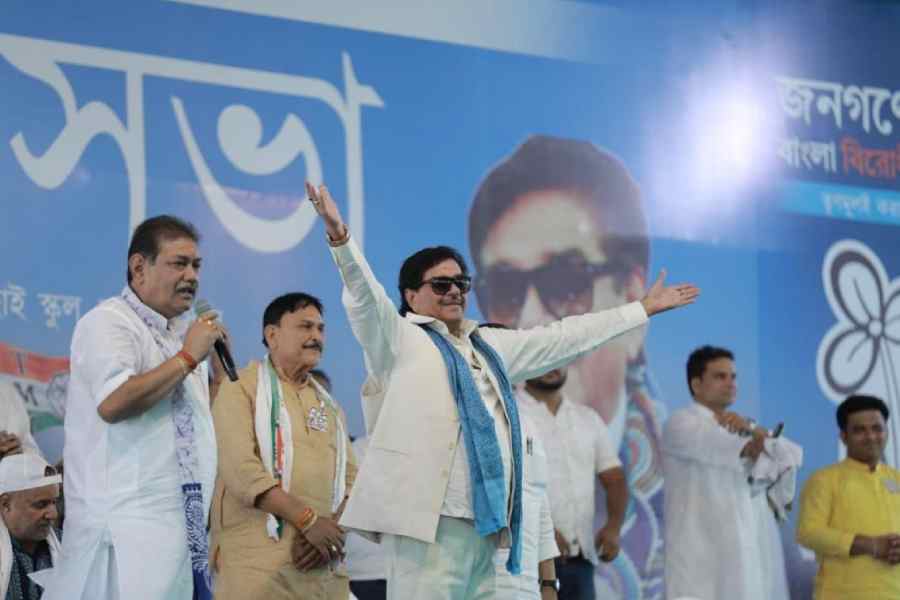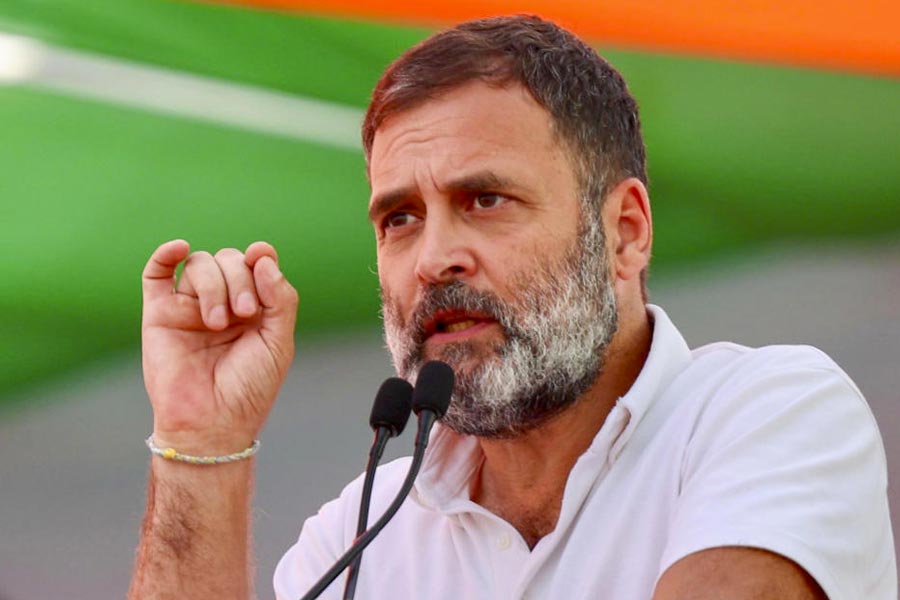
Pictures: Pabitra Das
Ranjan Ghosh’s second film Rongberonger Korhi — starring Rituparna Sengupta, Ritwick Chakraborty, Soham, Arunima Ghosh, Arjun Chakrabarty, Chiranjeet — is a film on money and its effects on people and their relationships. The film also has a star name as the creative consultant — Aparna Sen. t2 dropped by Sen’s Silver Spring apartment for a chat, accompanied by Ranjan.
Why did you decide to come on board as the creative consultant for this film?
Aparna: Ranjan approached me and I asked him why he needed a creative consultant. And he said it would help him psychologically, morally. He would feel good. If I can contribute anything in a small way, then I would be happy to do so. I read the script and liked the stories. I had a couple of reservations, which, as a creative consultant, was my job to tell him about. And then he did whatever he had to.
A lot of other directors might approach you to be their creative consultant now...
Aparna: That’s a possibility. That’s, in fact, a good avenue of work for me since I don’t have to shoulder the whole film, which is much more strenuous. And if I can contribute without undertaking so much strain, then it is good. See, basically I am ideating. So it’s not as strenuous as hands-on work. Of course I put in a lot of thought into it. I go through the script with a toothcomb, go through the editing, go through everything... in whatever way I can help improve the quality of the product. I don’t mind that job.
Ranjan: In Hollywood and Bollywood, we have seen mentors working for their protege. And it is something that should be done because it improves the quality of the film.
Aparna: Our experience comes to good use. I heard the script (of Rongberonger Korhi) first, made certain suggestions and corrections, most of which Ranjan accepted. Some he did not…
So there was that room for…
Aparna: Of course, it is his film. I was in no way trying to make the film for him. Nothing like that. And then I went location hunting with him. I gave him feedback on casting, make-up, costume, art direction, editing.
Ranjan: On the whole process basically.
Aparna: I sat on the first cut.

Did you visit the sets during the shoot?
Aparna: No, I did not want to. Because it’s easy for people to say, ‘Oh, Aparna Sen has made it’. I did not want that at all for him. And that would have been untrue.
Ranjan: I call her mentor and she has also actively performed as the creative producer. The creative producer is the bridge between the director and producer.
Did you have a word with the actors?
Aparna: I did, initially, with some of the actors... Rituparna, Ritwick and Soham.
What was it about the script that struck you first?
Aparna: I thought it was unusual. There are little stories that are tied by this one thread — the money part. The stories have interesting twists. It has a well-crafted storyline. Bojha jaay je likhechhe tar literature onek pora achhe. Unless you have a nice, strong foundation in literature, you don’t come up with stories like this. I really liked it. Ranjan has done a decent job.
Ranjan, you were the assistant director on Aparna Sen’s Iti Mrinalini. When did you meet her for the first time?
Ranjan: I met Rinadi on the sets of Antaheen, where I was assisting Aniruddha Roy Chowdhury. I would look for an opportunity to interact with Aparna Sen, but in vain. And then one day something happened. There were a few photographs framed in glass that needed to be signed by Paro, the character she was playing in Antaheen. She signed a photograph, and then it was noticed that she had signed with a permanent marker! The ink just wouldn’t go! So I took a temporary marker and wrote over the signature. And then quickly rubbed it off. That did it. Rinadi looked up at me. She seemed impressed.
Aparna: He made it a point to get to know me. He was after me the whole time, until I said okay.
.jpg)
How has the working relationship evolved between the two of you?
Aparna: Well, he got past my scolding! He took it in his stride.
Ranjan: Every day I would get a scolding, and one standard question would be, ‘How exactly are you contributing today?’ Today, when I am directing I know exactly what she meant.
Do you discuss things with him when you are working on a film?
Aparna: Yeah, we discuss ideas. I read out my scripts. This (exchange) happens with Srijit (Mukherji) also. In fact, it was Srijit who cast Rittika (Sen) for Arshinagar. I took her pictures and then I kept studying the photographs and then I could see her as Juliet.
Ranjan: For me, it’s an intellectual exercise.
Do you incorporate the feedback?
Aparna: Yes, of course.
Ranjan: If it falls within the purview of her vision.
Is it a good time for young filmmakers to make their presence felt? How is the film climate here?
Aparna: It’s a good time. What I really like is that there is this climate of camaraderie... directors working together, collaborating.
Do commercial pressures weigh down a young director?
Ranjan: You can choose… it’s up to the director. You can choose not to be a part of this rat race.
Aparna: But kichhuta kortei hoy.
Ranjan, you haven’t joined Twitter yet...
Aparna: But he should be (on Twitter). It is important.
Ranjan: I am on Facebook.
Aparna: I am more active on Facebook than Twitter. Social media is important. But everything has an optimum. How busy are you going to get mentally with that? Do you have enough creative space left for yourself? Do you have time to read? Do you have time to live? Do you have time to soak in experiences? What is going to be your resource material if you don’t have actual lived experiences? What do you fall back on?

What is your writing process? What is your way of working?
Aparna: I talk to people a lot. I keep telling the story. In the telling, details are added. I tend to remember those details and then I start writing the synopsis. While writing that, a whole lot of details get added. Then I start writing the script. Sometimes I’ll do a sequence of events. Sometimes I write a scene and insert it later. An incident can trigger off an idea, then that finds its way into my script.
Is there a particular time when you write?
Aparna: It can be any time. I write when the images start coming. I can only think in images. Sometimes I write on my phone.
Ranjan is now directing his third film. Has he asked you to act in his film yet?
Aparna: Not yet… and tomra shobai jano, I am not very keen on acting.
Ranjan: Whenever I want to cast her, it has to do justice to her stature.
Aparna: It is difficult to say no … he has been my AD. To tell you the truth, I am hard-pressed for time. Which is why I don’t like to fritter my time away acting. I’d much rather direct, write.

